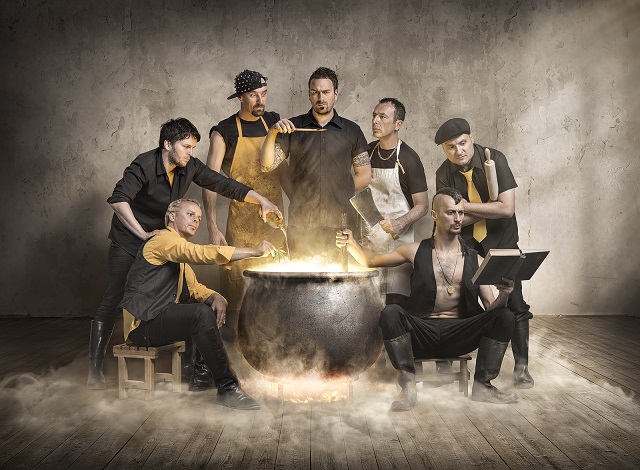Manu Chao’s Joyful Revolution Gets a New Chapter With ‘Viva Tu’
The multilingual global-pop busker is back with his first album in 17 years

Manu Chao performs at Circolo Magnolia of Segrate on Aug. 1, 2024, in Milan, Italy. Sergione Infuso/Corbis/Getty Images
Manu Chao first made a splash in the late Nineties with his fantastic debut solo album, Clandestino, the work of a multilingual, post-modern leftist busker whose music seemed to infuse the everything-at-once sonics of Beck’s Odelay with the spirit of Woody Guthrie, Bob Marley, and Joe Strummer. The title appropriated a derogatory term for undocumented immigrants, and Manu Chao (who was born in Paris to Spanish parents and had previously been in the Clash-y French rock band Mano Negra) made the album traveling around the world producing songs on the fly on his laptop — “a clown making too much dirty sound,” calling for anti-globalist resistance in music that mixed reggae, hip-hop, Latin beats, earthy folk tunes, and digital samples. The result was a playful, joyful, and fluid good time, especially as albums that sample Zapatista leader Subcomandante Marcos go.
He followed that with the equally excellent 2001 album Próxima Estación: Esperanza, ebulliently chirping his “merry blues” on infectious tunes like the bookstore/coffee shop hit “Me Gustas Tu” (over 700,000,000 streams to date!). But he hasn’t made an album since 2007’s more rock-oriented La Radiolina, which makes his new one, Viva Tu, such a welcome surprise. Until we solve capitalism, we need this guy and his guitar around.
“This is not success/This is not progress/Just a collective suicide,” a pair of backing singers warns against a light four-on-the-floor beat and tensile acoustic picking on “River Why,” which slams the evils of neoliberalism in terms that Manu Chao delivers with an almost winkingly light touch. True to form, Viva Tu is happily all over the map, “world music” in the most lived-in, organic sense. He sings in English, French, Spanish, and Portuguese, and the sound is a burbling dialog between French chanson, Spanish flamenco, dub production, Latin grooves, and folk ballads. Willie Nelson is on hand for “Heaven’s Bad Day,” a campfire-ready sing-along driven by a chugging harmonica and hard strumming. The title track is a tribute to the everyday lives of people in the various cities he’s lived in set to a rumba beat. On “São Paulo Motoboy,” the former motorcycle courier salutes the bikers riding the streets of Brazil’s largest city; it’s an ode to thrilling, scary freedom and working-class labor that perfectly sums up the love of forward motion and collective endeavor that’s at the heart of his music. He hits a peak teaming up with French rapper Laeti on “Tu Te Vas,” a heartbroken love song with a shoulder-to-cry prettiness.
Even if he hasn’t had an album out in 17 years, Manu Chao has remained active, giving away his music for free online, collaborating with artists like Sofia Kourtesis and Bomba Estéreo, and participating in protest movements for environmental justice and other causes. Anyone who flipped for Clandestino and Próxima Estación: Esperanza will immediately feel at home here. The circular Latin-tinged grooves, bright, open acoustic chords, conversational singing, and warm, melodic repetition that have marked his previous work are all here.
The album has a little more of a singer-songwriter quality than its predecessors, with some somber moments befitting a 61-year-old artist who’s been involved in music since the Eighties punk scene. Some of the most arresting moments have a mix of reflective wisdom and hopeful resilience. On “Tantas Tierras,” he sings lyrics in Spanish that go from beleaguered realism to poetic resistance, as the music moves and shimmers like water over smooth stones, implying a clear, bright course towards nourishing new struggles. On “Lonely Night,” he sleeplessly waits for dawn to come, out of booze, smoke hanging in the air, with a busy unnamed city teeming outside his window. But even in that dark moment, he finds promise. “I’ll do my best,” he sings simply, already packing his gear and steeling himself for whatever adventure comes tomorrow morning. Let’s hope we don’t have to wait another 17 years to hear his next stories.
From Rolling Stone US.







